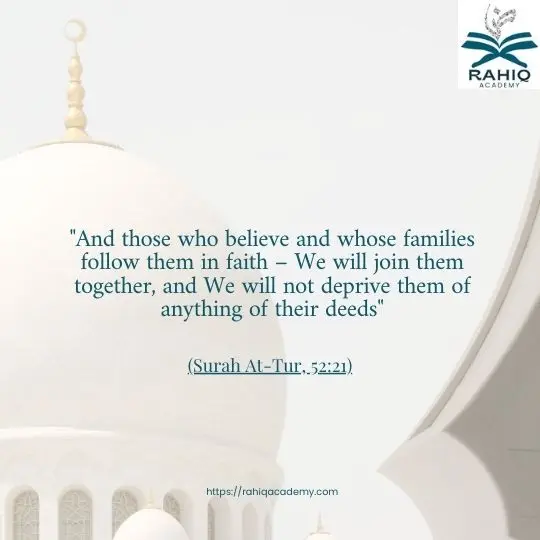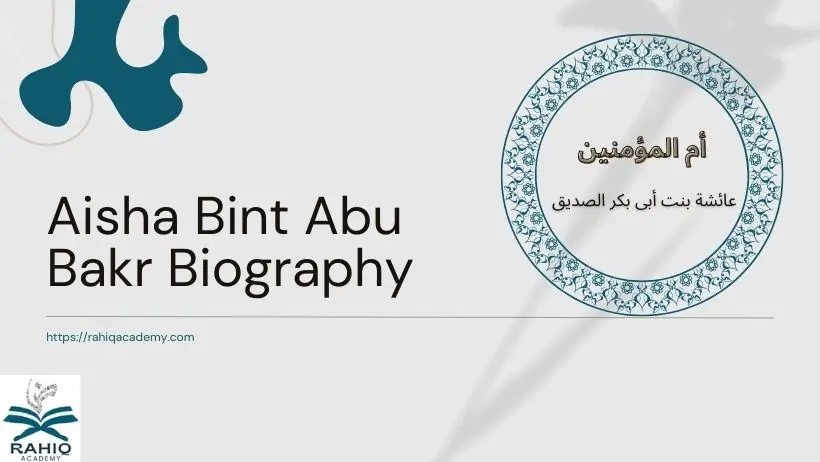Aisha bint Abu Bakr (may Allah be pleased with her) is one of the most beloved and respected figures in Islamic history. Known for her deep knowledge, unwavering faith, and extraordinary dedication, she played a vital role in preserving and teaching the teachings of the Prophet Muhammad (peace be upon him).
Aisha Bint Abu Bakr Biography explores her family lineage, early life, marriage, achievements, and her lasting legacy, providing insight into how she continues to inspire Muslims around the world today.
Aisha bint Abu Bakr Family Tree

Aisha bint Abu Bakr (may Allah be pleased with her) was born into one of the most respected families in Mecca.
Her father, Abu Bakr as-Siddiq (may Allah be pleased with him), was a close friend and confidant of the Prophet Muhammad (peace be upon him), who would go on to become the first Caliph of Islam. Abu Bakr’s unwavering support and dedication to the Prophet’s mission made him one of the most important figures in early Islam. He was known for his compassion, honesty, and loyalty, and he dedicated his entire life to spreading the message of Islam.
Aisha’s mother, Umm Ruman (may Allah be pleased with her), was also a pious woman deeply committed to her faith. Aisha had several siblings, including her brother Abdur Rahman and half brother Abdullah. Growing up, she was surrounded by people of faith, which greatly influenced her own spiritual and intellectual development.
Aisha bint Abu Bakr Family Tree connections linked her to some of the most esteemed figures in the early Muslim community, and this lineage played an important role in her lifelong dedication to the teachings of Islam.
The Quran speaks about the importance of righteous family ties:
“And those who believe and whose families follow them in faith – We will join them together, and We will not deprive them of anything of their deeds”
(Surah At-Tur, 52:21)
Aisha bint Abu Bakr Childhood
Raised in Mecca, Aisha was surrounded by a family deeply committed to Islam. Her father, Abu Bakr, was one of the earliest converts to Islam, standing by the Prophet Muhammad (peace be upon him) during times of persecution and struggle.
From a young age, Aisha demonstrated a keen intellect and sharp memory, qualities that would later distinguish her as a leading scholar. Her environment fostered a love for learning, and her exposure to Islamic teachings laid the groundwork for her lifelong contributions to Islamic scholarship.
Despite the challenges faced by early Muslims in Mecca, Aisha’s upbringing was filled with love, faith, and resilience. She often accompanied her father to gatherings where the Prophet shared his teachings, which deepened her understanding and devotion to Islam. The Quran emphasizes the importance of a righteous family upbringing, highlighting how this environment shapes a person’s character:
“And those who say, ‘Our Lord, grant us from among our wives and offspring comfort to our eyes and make us an example for the righteous’”
(Surah Al-Furqan, 25:74)
Aisha bint Abu Bakr Children
Although Aisha did not have any biological children, she was affectionately known as “Umm al-Mu’minin,” or “Mother of the Believers,” a title given to all the wives of the Prophet Muhammad (peace be upon him).
This title reflects her role as a motherly figure within the Muslim community, offering guidance, wisdom, and spiritual support. Aisha’s influence extended far beyond that of a traditional mother, as she became a mentor and teacher to countless Muslims.
She fulfilled the Prophet’s call to share knowledge:
“Convey from me, even if it is one verse”
(Sahih al-Bukhari, Hadith 3461)
Through her mentorship, Aisha nurtured the spiritual growth of many Muslims and left a legacy of Islamic scholarship that continues to benefit the community to this day.
Aisha bint Abu Bakr Marriage
Aisha’s marriage to the Prophet Muhammad (peace be upon him) was a key moment in early Islamic history. As his wife, she had unique access to his daily life and teachings, allowing her to learn directly from him.
This opportunity enabled her to become one of the foremost scholars of her time, preserving and narrating hadiths that have become an essential part of Islamic knowledge. Her marriage to the Prophet was conducted in line with the customs of seventh-century Arabia, and their relationship was marked by mutual respect, affection, and a shared commitment to the message of Islam.
Aisha bint Abu Bakr Marriage provided her with the opportunity to observe the Prophet’s character and values closely. She often engaged in discussions with him on religious matters, reflecting her deep intellectual curiosity. The Prophet’s treatment of her exemplified kindness and respect, as he once said:
“The best of you are those who are best to their wives.”
(Sunan al-Tirmidhi, Hadith 1162)
Through her relationship with the Prophet, Aisha developed a profound understanding of Islamic teachings, which she later shared with the Muslim community.
Achievements of Aisha Bint Abu Bakr
Aisha bint Abu Bakr’s contributions to Islamic knowledge and understanding are truly remarkable. Her achievements include:
- Hadith Narration: Aisha narrated over two thousand hadiths, covering a wide range of topics, including acts of worship, ethics, and social practices. Her narrations are essential to understanding the life and teachings of the Prophet (peace be upon him).
- Islamic Jurisprudence: Aisha was known for her deep knowledge of Islamic jurisprudence and was often consulted by other companions on matters of law. Her legal opinions and understanding of the Quran helped shape the development of early Islamic law.
- Teaching and Mentorship: Aisha dedicated her life to teaching after the Prophet’s passing. She taught both men and women, emphasizing the importance of education for all Muslims. Her students included some of the most prominent scholars of her time, and her legacy of mentorship has inspired generations.
- Advocacy for Women’s Rights: Aisha emphasized the importance of women’s participation in the Muslim community. Through her example, she showed that women could be active participants in Islamic scholarship and public life. Her life reflects the Quranic encouragement of knowledge for all believers:
“Say, ‘Are those who know equal to those who do not know?’”
(Surah Az-Zumar, 39:9)
Achievements of Aisha Bint Abu Bakr demonstrate her exceptional intellect, deep faith, and dedication to the teachings of Islam. Her work has left a lasting impact on Islamic scholarship and continues to be a source of inspiration.
Aisha bint Abu Bakr Grave
Aisha spent her last years in Madinah, engaged in worship, teaching, and reflection. She passed away in 678 CE (58 AH) at the age of approximately 67 and was buried in Jannat al-Baqi, a revered cemetery near the Prophet’s Mosque. Jannat al-Baqi is a site of immense spiritual significance, as it holds the graves of many of the Prophet’s companions and family members.
Aisha bint Abu Bakr grave serves as a place of reflection and respect for Muslims who visit Madinah. Aisha’s life of service and scholarship left a profound legacy, and her final resting place in Jannat al-Baqi symbolizes her connection to the early Muslim community. The Prophet Muhammad (peace be upon him) once said:
“When a person dies, their deeds are cut off except for three: ongoing charity, beneficial knowledge, or a righteous child who prays for them”
(Sahih Muslim, Hadith 1631)
Aisha’s beneficial knowledge continues to bless the Muslim community, and her legacy of teaching and spiritual guidance lives on.
Conclusion
Aisha bint Abu Bakr (may Allah be pleased with her) is one of the most respected and beloved figures in Islamic history. As the wife of the Prophet Muhammad (peace be upon him), a distinguished scholar, and a mentor to generations of Muslims, she exemplified faith, wisdom, and dedication. Her contributions to Islamic scholarship and her role in preserving the teachings of the Prophet have left a lasting impact on the Muslim community.
At RAHIQ Academy, we celebrate the remarkable legacy of figures like Aisha bint Abu Bakr. Our courses on the life of the Prophet, Arabic language, and Islamic studies offer a chance to deepen your understanding of Islam and connect with its rich heritage. Join us to explore the lives of those who walked alongside the Prophet and contributed to the foundations of our faith.




